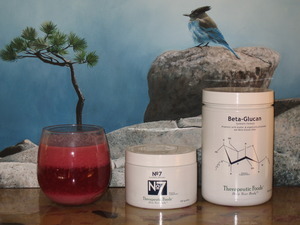The Rocky Mountain Institute
|
Dear Friends,  
A major purpose for our Forward Thinking Newletter is to connect the dots, to introduce you to the people who are working effectively towards bring about a world that is socially equitable, environmentally clean and economically sustainable. In this week’s newsletter I want to focus on one of my favorites, the Rocky Mountain Institute (RMI). Last week RMI came out with their Spring 2012 journal. Here is a link to it. Do take the time to read the different articles. It will just take a few minutes and it will truly inspire you with hope for a future that is good for all humankind. I’ve highlighted a few gems from it for you below, but here is your direct link: RMI eSolutions Journal- Spring 2012. A couple of quotes from Amory Lovins’ (RMI’s co-founder, Chairman and Chief Scientist) article Practicle Transformation:
This certainly is true. We know that the food industry worldwide is controled by a handful of transnational corporations we group under the Industrial Agri-Food Complex (Cargill, Archer Daniels Midland, Monsanto, General Foods, etc) and of course there is Big Oil controling our energy use and choices. The tendency is for us to say that these are our enemy. But Rocky Mountain has taken a different approach, and I think the enlightened approach. Lovins, in his article, calls it a Jûjutsu like approach. That is you use your apponents strengths, redirecting them into accomplishing your desired goals. RMI is working with the biggest of the big, and they are bit by bit changing, getting the message. As Emory says,
From our perspective, it is not about manipulating, but working together, as partners, to bring about changes. Read his article. The momentum is beginning to shift. It’s truly exciting. Michael Potts is Rocky Mountain Institute’s President and CEO. In his article RMI’s Trademark Approach he states,
Michael highlights in his piece RMI’s recently published (Fall 2011) Reinventing Fire: Bold Business Solutions for the New Energy Era. Reinventing Fire gives a business led roadmap to get the American economy off of oil, coal and nuclear power, and to use one-third less natural gas by 2050. Have you heard of the Dutch Postcode Lottery Funds Diverse Groups? I certainly hadn’t. Molly Miller (RMI) enlightens us about this wonderful group in her article, A More Charitable World: Dutch Postcode Lottery Funds Diverse Groups.
This year RMI received $1.2 million from the lottery. Since 2009, they’ve received more than $4 million in unrestricted revenue from the Postcode Lottery. Lottery’s Managing Director, Marieke van Schaik, said “We are very proud to support Rocky Mountain Institute. The world needs organizations working for a better and more efficient use of our natural resources. RMI is able to combine this objective with market-oriented solutions, which creates much needed transformation in both the corporate and the private sphere.” RMI presents a great example for us on the holistic path, and that is not to demonize our apponent. It causes me to think again about those activists in our movement who’ve gone on to accept high level positions in giant corporations, companies whose philosophies and actions are at the causative core of our ecological problems, the very companies we need to change. Maybe they, our comrads, too are practicing Aikido. What do you think? Sincerely yours, Seann Bardell Clinical Note:
The Japanese macaques are the most northerly-living non-human primates. In the forested and mountainous region of Japan where they’re found, some populations have been known to bathe in hot springs during the freezing winters and swim during the sweltering summer heat. Japanese macaques have become famous for washing their food in saltwater before they eat it. This skill has spread through the population and down the generations. For fun these macaques make snowballs, just like us. (BBC Nature)
|
 When it comes to probiotics we believe in diversity. We presently give you seven different probiotic formulas to choose from. Here’s a combination we find very effective. Add one teaspoon of Number 7 Systemic Booster and one heaping tablespoon of the Beta Glucan Synbiotic Formula to a large glass of water. The combination gives you 12 different strains of lactic acid bacteria plus 15 grams of soluble fiber. The good bug count is 40 billion. Plus, you are getting beet, pomegranate, tart cherry, cranberry, pineapple (all organic), carnitine, carnosine, Vitamin D3, folate and fructoborate.
When it comes to probiotics we believe in diversity. We presently give you seven different probiotic formulas to choose from. Here’s a combination we find very effective. Add one teaspoon of Number 7 Systemic Booster and one heaping tablespoon of the Beta Glucan Synbiotic Formula to a large glass of water. The combination gives you 12 different strains of lactic acid bacteria plus 15 grams of soluble fiber. The good bug count is 40 billion. Plus, you are getting beet, pomegranate, tart cherry, cranberry, pineapple (all organic), carnitine, carnosine, Vitamin D3, folate and fructoborate.

